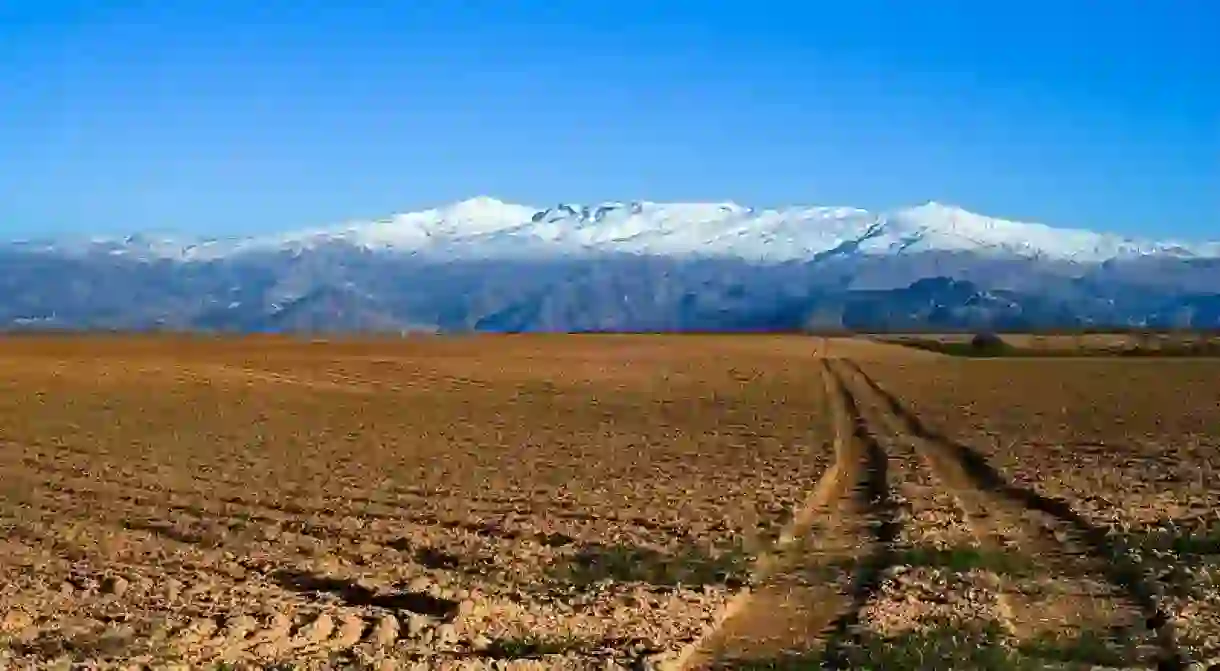A Low-Budget Traveller’s Guide to Spain’s Sierra Nevada

From beautiful snow capped peaks, to stunning hiking and biking routes that are free for all, to cheap, rustic accommodation and affordable, hearty mountain meals, the Sierra Nevada in Andalucia is a budget traveller’s dream. Check out our guide for the best way to enjoy Spain’s national park on a shoe string.
So you’ve heard Sierra Nevada – Spain’s largest national park – is great for skiing. With its high peaks, white washed villages and draw-dropping vistas, you wouldn’t be wrong. But while the price tag might sway you, there are plenty of activities that offer draw-dropping vistas, rustic meals and beautiful places to stay without breaking the bank.
Hiking and biking
It’s possible to immerse yourself in the beauty of Andalusia’s Sierra Nevada without spending a cent. The park’s rugged wildernesses are home to many biking and trekking tracks, to suit all levels of ability and which can be enjoyed free of charge.
For mountain biking, head to the Cumbres Verdes area of the park, found near the town of La Zubia a few kilometres outside Granada. This is a relatively low section of the Sierra offering circular tracks of varying lengths (from a few kilometres to 50+), all of which boast spectacular views of the park’s untamed terrain. For more demanding rides, head to Hoya de la Mora, a parking and refreshment point located at 2,500 metres; from here, the highest paved road in Europe takes you almost to the 3,396-metre-high peak of Veleta, mainland Spain’s third-highest mountain.

There’s also some great trekking to be enjoyed in the Cumbres Verdes, especially along the track that leads to the top of the 2,079-metre Trevenque. The most demanding hike in the Sierra Nevada, though, is to the summit of the 3,478-metre Mount Mulhacén, mainland Spain’s highest mountain. You can start from Trevélez or Capileira in the Alpujarra region, or from Hoya de la Mora outside Granada. Either way, the views from ‘The Roof of Spain’ will make every step worthwhile, and it won’t cost you anything.
Top tip: if you’re walking or cycling in a snowy Sierra on a sunny day (i.e. between November–May/June), a high-quality pair of UV-proof sunglasses is a must: the strength of the sun, combined with reflected glare, can be dangerous otherwise.
Where to stay
If you want to spread your hiking or biking over a couple of days in the Sierra Nevada, you needn’t spend much on overnight accommodation: there are some superb catered refuges at high altitudes that offer a bed, dinner, breakfast and a picnic for between 20 and 30 euros a night (booking in advance recommended).

For a two-day conquest of Mulhacén, book yourself into the Refugio Poquiera, which offers 85 beds and hot meals at 2,500 metres. In the north of the park, Refugio Postero Alto provides similar comfort levels at 1,900 metres. It’s also possible, if you don’t mind roughing it for a night, to take free shelter in the park’s more primitive huts, which usually just house a few wooden bunks. Refugio de la Carihuela and Refugio de la Caldera, both at 3,000+ metres, are in good condition. Most towns and villages in the Sierra Nevada also offer at least a couple of inexpensive hostels to stay in.
Eating and drinking
The best way to eat and drink on a budget in the Sierra Nevada is to prepare a picnic before you set off exploring. Particularly spectacular places to enjoy an open-air lunch are the summits of the park’s two highest peaks, Mulhacén and Veleta: at these dizzying altitudes, surrounded by fellow trekkers also refuelling, you can take in some of the most dramatic and humbling views in Spain. Pack an energy bar for dessert so you’ve a full tank for the return hike.

Visiting the Alpujarra
The Alpujarra is a region studded with gorgeous whitewashed villages that extends along the Sierra Nevada’s southern edge. Must-visits are Capileira, Bubión and Pampaneira – three settlements nestled close together in the stunning Poqueira valley that can be explored at minimal cost. Indeed, wandering these villages’ tiny, flower-filled streets, glimpsing the Sierra’s snow-capped giants in gaps between the pretty houses is an unforgettable experience that won’t cost you anything. Eating and drinking in this area is cheap, too: rarely will a beer set you back more than a couple of euros and set menus are usually about 10 euros per person.














